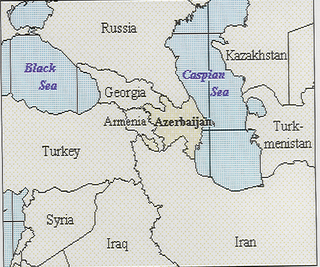
Dr Mark Durie, an Anglican vicar and a fellow of the Australian Academy of the Humanities, has written a helpful piece concerning the place of violence in Muslim faith and practice. I say helpful because he doesn't try to claim too much, yet he still says some very important things that need to be heard as the world tries to figure out why some (too many) Muslims are so prone to militant violence and other (again too many) Muslims are loath to condemn such violence done in the name of Islam. The problem is well demonstrated by statements like the following:
On the other hand, no less a figure than the Grand Mufti of Saudi Arabia, Sheikh Abdel Aziz al-Sheikh, issued a statement on the official Saudi news service, defending Muslims' divine right to resort to violence: "The spread of Islam has gone through several phases, secret and then public, in Mecca and Medina. God then authorised the faithful to defend themselves and to fight against those fighting them, which amounts to a right legitimised by God. This ... is quite reasonable, and God will not hate it."
Saudi Arabia's most senior cleric also explained that war was never Islam's ancient founder, the prophet Mohammed's, first choice: "He gave three options: either accept Islam, or surrender and pay tax, and they will be allowed to remain in their land, observing their religion under the protection of Muslims."Thus, according to the Grand Mufti, the third option of violence against non-Muslims was only a last resort, if they refused to convert or surrender peacefully to the armies of Islam.
It's so simple, really--convert, surrender, or be killed! These are the attitudes which allow the violence we have seen from these animals to continue and flourish. But worse still, I think, are the attitudes among us in the West that likewise turn a blind eye and make various levels of excuses for the offenders. Durie continues:
Many secular Westerners rely on certain crippling preconceptions. One is the often-heard mantra that "all religions are the same". Another is the claim that "anyone can justify violence from any religious text". This idea stretches back at least to Rousseau, who considered any and all forms of religion to be pernicious. Either of these views, if firmly held, would tend to sabotage anyone's ability to investigate the Koran's distinctive take on violence.
(This is, by the way, the same problem alluded to in
Sam Harris' notable column in the LA Times last week about how liberals--who are secular--don't at all understand militant Islam.) Durie goes on to discuss important concepts such as
abrogation, the idea that later (and more vilolent) verses of the Koran override earlier ones, and the idea of
"the domain of war."
The popular Muslim scholar Yusuf al-Qaradawi, head of the European Council for Fatwa and Research, and al-Jazeera television personality, in July 2003 invoked the classical dogma of the Dar al-Harb or "domain of war" that encompasses all the regions of the world in which Islam is not yet dominant. In the Dar al-Harb the lives and possessions of non-Muslims are muba'a, or "licit", making them a legitimate target for military action: "It has been determined by Islamic law that the blood and property of people of Dar al-Harb is not protected ... in modern war, all of society, with all its classes and ethnic groups, is mobilised to participate in the war, to aid its continuation and to provide it with the material and human fuel required for it to assure the victory of the state fighting its enemies."
I pray that naivete is not is not a cause of our downfall. There is no longer any excuse for it!







